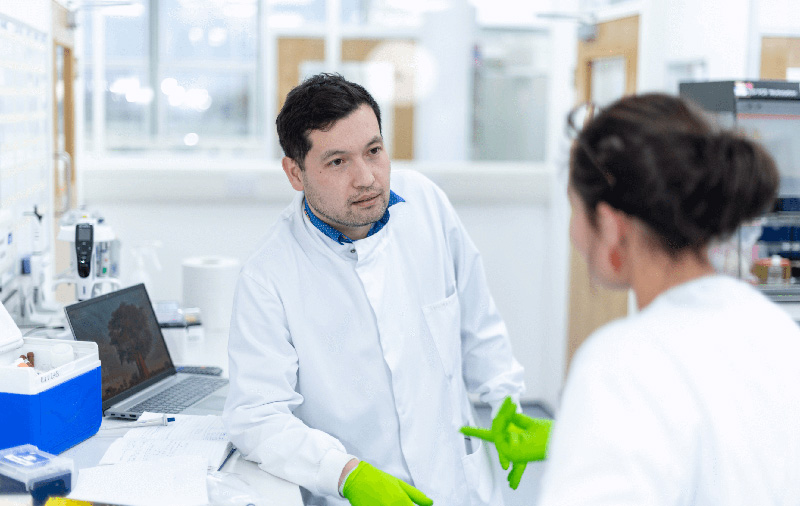
Plant Master Mix
找不到您想要的产品? 联系我们咨询
High-Sensitivity Plant Master Mixes for PCR and qPCR Assays
However, obtaining consistency and sensitivity can be challenging, given the wide diversity in plant physiology. It is not just the physical challenge to release the DNA, but once the cell has been lysed, but also all the metabolites and cell constituents that can also pose inhibition problems such as complex carbohydrates and phenolic compounds.
Meridian’s direct plant master mix is designed to specifically overcome the inhibitors found in plant samples. As a result, it is capable of highly sensitive detection in multiplex assays, either using extracted DNA or RNA or crudely processed samples. No further optimization is required aside from the addition of primers and probes.
- Ultra-sensitive detection down to 1 copy of DNA or using direct amplification protocols.
- Inhibitor-tolerant to PCR inhibitors found in plant lysates, direct or treated with SDS or NaOH.
- Can be used in a liquid or dry format, reducing the cost and complexity of creating ambient-temperature stable assays.
Meridian offers a ready to use plant, 4x concentrated, glycerol-free master mix for qPCR amplification, that has been formulated for direct use with crude lysates that can be used in a wet format or lyophilized and air-dried to create fast, ultra-sensitive ambient-temperature stable assays.
产品资料
Air-Dryable Direct Plant Master MixAir-Dryable Direct Plant Master Mix
Most plant tissue can be used, the Air-Dryable Direct Plant Master Mix has been designed to cope with most of the PCR inhibitors are found in plant tissues, including humic acids, pectin, polyphenols, complex polysaccharides, tannins and xylan.
With Meridian’s direct plant master mix, you can see down to 1 copy.
That will depend on the plant tissue, for soft leaf samples a direct heat lysis can be applied, a single leaf punch (leaf disc of ø1,2 mm or approximately 0.1 mg) is heated at 95 °C for 5 min in 20 µL water. For tougher tissue a SDS lysis (A single leaf punch is heated at 95 °C for 5 min in 26 µL SDS Lysis Buffer (0.1% SDS)) or alkaline lysis (A single leaf punch was heated at 95 °C for 5 minutes in 20 µL alkaline Lysis Buffer (0.2 M NaOH) and neutralised using 6 µL 2 M Tris-HCl, pH 7.5 (Total lysate volume per leaf punch = 26 µL)) may be necessary.
It is compatible with standard cycling conditions and can also be used with very fast cycling conditions, however some assay development may be required for the volume of plant lysate that is needed for a molecular assay.
冻干后的预混液在正确封存的情况下可在常温下稳定保持2年。
与我们的专业团队联系
想了解更多迈迪安免疫和分子产品信息?欢迎与我们联系